A year and a half ago Ali Younesi was arrested by plainclothes officers in the street. Agents then raided the home of Amir Hossein Moradi, his friend, arresting him as well. Amnesty International has now, in an open letter to Gholamhossein Mohseni Ejei, the head of Iran's judiciary, condemned the severe torture and beatings of the two students at Sharif University of Technology, calling for their immediate release, and demanding that authorities conduct independent investigations into Younesi’s and Moradi’s torture and ill-treatment and prosecute those responsible in accordance with international standards for a fair trial.
IranWire spoke to Mehrangiz Kar, a prominent Iranian human rights lawyer based in the Untied States, and Reza Younesi, based in Sweden, whose brother Ali has been in prison for a year and a half, instead of studying at university, about Amnesty International's letter and the situation of the two students. Both are understood to be aged just 19 or 20 years and Ali Younesi is reported to have a severe eye infection.
Younesi, a Sharif University computer engineering student and winner of the silver medal of the National Astronomy Olympiad in 2016, and the gold medal of the World Astronomy Olympiad in 2017, was arrested after being severely beaten by officers, on April 10, 2020, who gave no reason for his arrest. On the same day, Amir Hossein Moradi, a physics student at Sharif and a silver medalist in the National Astronomy Olympiad, was also arrested.
Days after the arrest of the two young students, Gholam-Hossein Esmaeili, a spokesperson for the Iranian judiciary, accused them of collaborating with the People's Mojahedin-e Khalq Organization (MEK) and said they had been trained by the MEK to commit acts of sabotage.
Younesi and Moradi were subjected to the most severe physical and psychological torture for 60 days in solitary confinement in Ward 209 of Evin Prison. Reports of this abuse were previously conveyed to IranWire by Ali Younesi's former inmate Mojtaba Hashemi.
Amnesty International has now confirmed this in a recent letter. In a statement issued on November 23, 2021, Amnesty warned of false accusations being issued against the students and that Ali Younesi and Amir Hossein Moradi may be sentenced to death on these false charges.
Mostafa Nili, a lawyer currently in prison for complaining to Iranian authorities about the mismanagement of the coronavirus pandemic, said in July that Younesi and Moradi had been charged with “corruption on earth,” “conspiracy and collusion against to act against national security” and “propaganda activity against the regime."
Amnesty also said Younesi was unable to see a doctor or go to a medical facility. The group also warned that both prioners were being denied a fair trial, access to a lawyer during interrogations, and were being pressured to give forced confessions against themselves. Amnesty called on Gholam-Hossein Ejei, Iran’s chief justice, to release Younesi and Moradi as soon as possible and to fulfill Iran’s international obligations to protect prisoners from torture and ill-treatment and to allow them to see lawyers and doctors.
Reza Younesi, Ali Younesi's brother, told IranWire: "Both Ali and Amir Hossein have been in Ward 209 for about a year now. They leave their rooms only twice a week, for 10 minutes each time to use the phone, and three times a week for exercise outside, 20 minutes each time. They are locked in their cells the rest of the time ...”
Reza added: "Amir Hossein and Ali's cells are separate, and each of them, along with several others, are kept in groups but in solitary confinement cells built for just one person."
Reza Younesi also said: “Right now they are in good physical and mental condition because they have not been interrogated for the past year."
"After their first hearing, which took place in July, no trial was held and we, as a family, do not know when the next hearing will be or when the trial will take place," he added.
Reza Younesi also referred to the letter from Amnesty and said: "We hope that there will be people in the judiciary who will pay attention to Amnesty’s request. We hope they will not be influenced by the Ministry of Intelligence and will release our loved ones as soon as possible."
According to Reza Younesi, his brother and Amir Hossein Moradi, during the early months of their detention, were tortured so that they would admit to tearing down a poster of Supreme Leader Ayatollah Ali Khamenei, the leader of the Islamic Republic, during protests, and to possessing explosives, as well as other charges. But they have denied the allegations.
Reza Younesi said: "Solitary confinement, torture, beatings and threats to detain family members were carried out to make them confess, but Amir Hussein and my brother did not accept the charges and denied them all during the public interrogation held at the Revolutionary Court. They also said they had been tortured."
Younesi was referring to a meeting on July 13, 2020, at the Palace of Justice in Tehran, convened at the request of Sharif University and in the presence of security and judicial officials. According to an informed source who spoke to Iranian human rights activists at the time, during the meeting, agents broadcast a video of two people setting fire to a building and claimed they were Ali Younesi and Amir Hossein Moradi. But representatives of student organizations present protested that the two men were not similar in size to the accused and that their faces could not be seen.
Mehrangiz Kar, a prominent Iranian lawyer living in the United States, commented on the impact of Amnesty International's statement on the situation of Amir Hossein Moradi and Ali Younesi: "The most important effect of such statements is to show the international community [the actions of] a government that has committed countless violations of domestic law and international law and human rights."
Kar added: “But the expectations that people – victims of these human rights abuses and their families – project on to these human rights groups do not come true from these statements alone. Whoever has lost a loved one to prison or other injustice, especially in a regime that does not abide by the law, wants their loved ones to be released immediately; what they deserve, as a human being, is a fair trial and access to a doctor and a lawyer."
The lawyer also said: "In this letter, it is clearly stated that these two young men have been in prison for a long time, and in solitary confinement in Ward 209 of Evin Prison, and have not yet been able to see their lawyer. This is enough to understand that they have been tortured and that even now they are in a situation where their rights are not respected under the law governing prisoners, neither international law nor domestic Iranian law."
"According to Iranian domestic law and the regulations of the Prisons Organization, prisoners must have access to medical facilities,” Kar told IranWire. “What is written in this letter shows that the situation of these two young men was a violation of Iranian law."
Referring to the impact of Amnesty’s statement at the United Nations, Kar said: "When a reputable international body, such as Amnesty International, describes the situation so clearly, these facts are documented and will be used in the UN General Assembly, in the Human Rights Council, in the documents that the Special Rapporteur on human rights in Iran collects, and in general by all organizations that address human rights abuses.”
Kar pointed to the recent Aban Tribunal, held in London last week, and the trial in Sweden of Hamid Nouri, assistant prosecutor at Gohardasht Prison in Karaj in 1988 during the killing of political prisoners. "During these two trials, many documents were cited from the work of these same international institutions, showing how important it is to document human rights violations for a state to be held accountable,” Kar said.
"In the litigation phase, whether the current regime is still in place or not, credible documents are certainly valuable and important," Kar said. "Therefore, this letter from Amnesty International to the head of the Iranian judiciary is an important document and will be used in the future. But I cannot say that it will immediately defeat the Islamic Republic or cause the two young men to be released quickly."
Mehrangiz Kar, who rejects statements from some critics who say that the work of human rights organizations incite Iranian authorities to punish political and ideological prisoners, said: "I do not think the Islamic Republic considers itself so immune from punishment for its actions. There are a large number of security forces in Iran, and these groups are competing with each other to commit more violence against the people. But they know they will not be safe forever."
"The United Nations is not a government with a military, and there are many legal and administrative barriers to action," she said. "But these statements are effective to some extent, and their effects should not be denied. However, one cannot immediately expect that they will move an authoritarian regime that has not respected any of its global obligations, especially before human rights institutions, over the past 40 years."
Related coverage:
UN Special Rapporteur Issues Damning Report on the State of Human Rights in Iran
European Parliament Approves Magnitsky Sanctions Against Human Rights Abusers in Iran
Impunity, Courage and the Pandemic: IranWire's Review of 2020
visit the accountability section
In this section of Iran Wire, you can contact the officials and launch your campaign for various problems





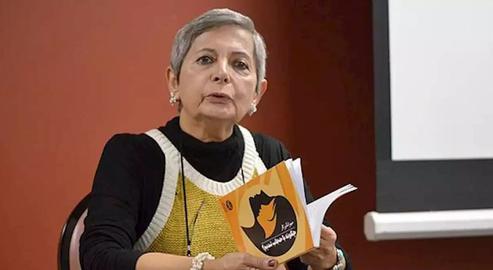
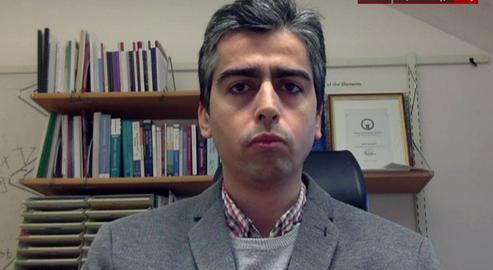




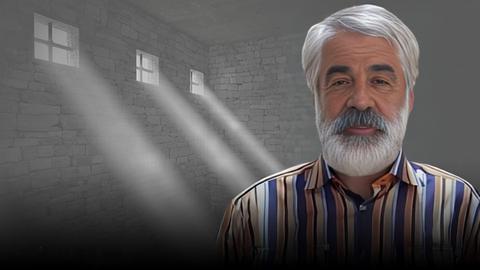


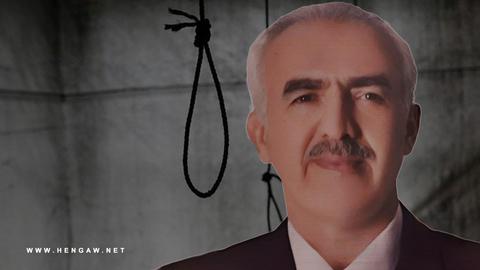
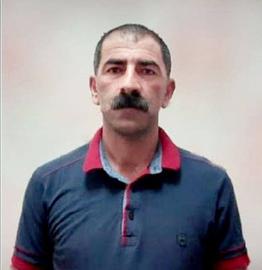

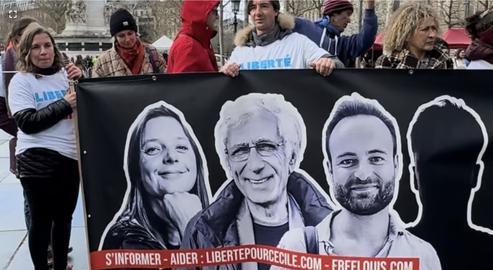


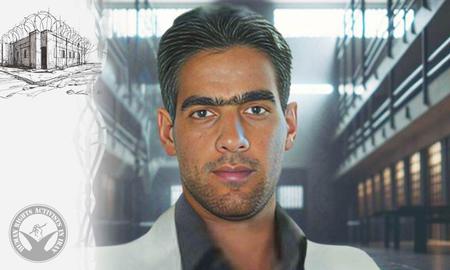


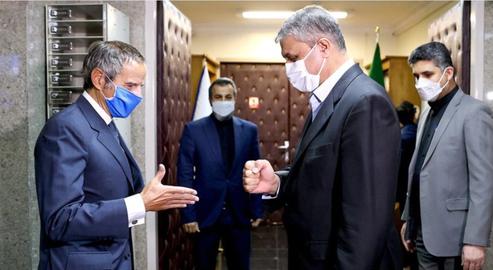
comments